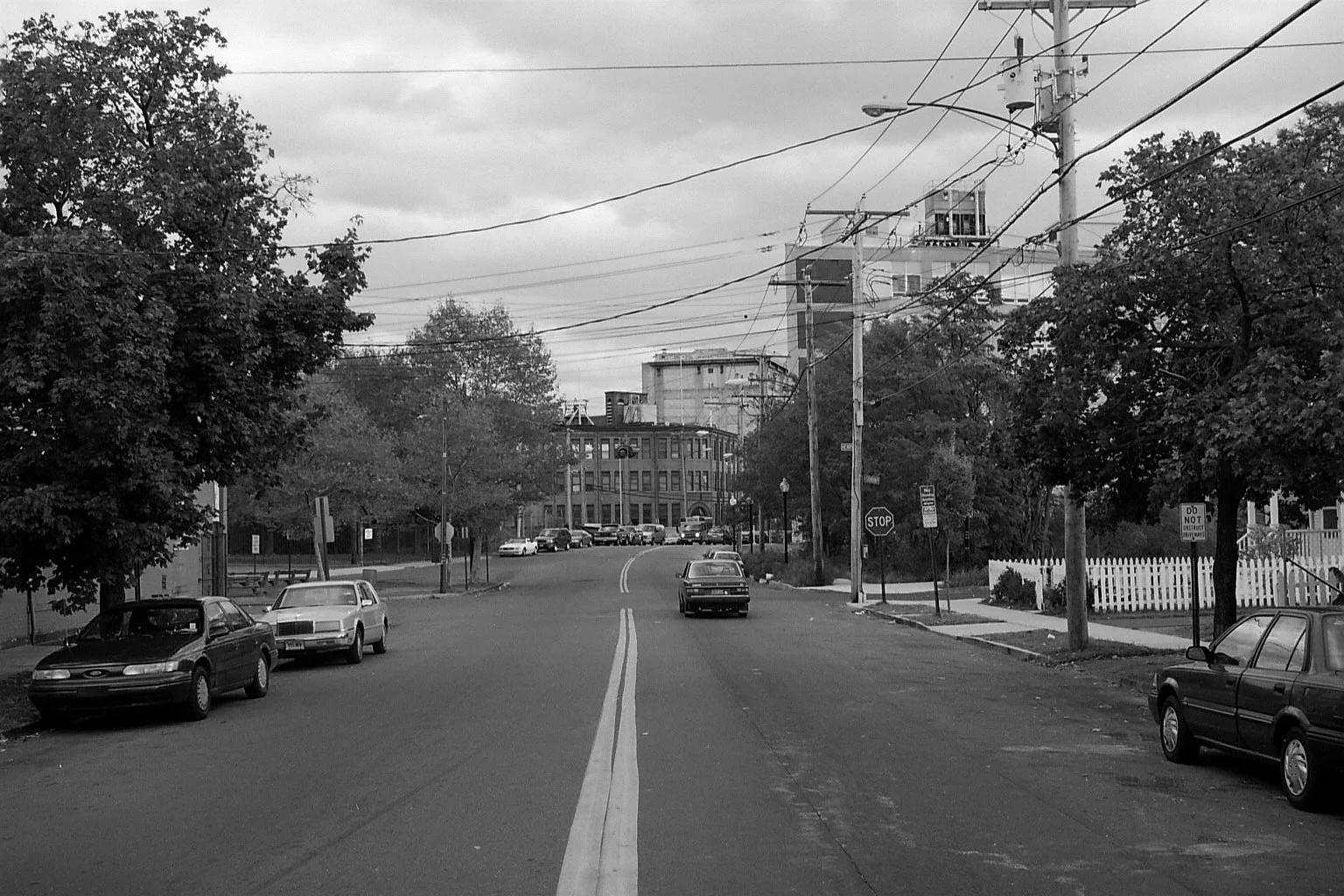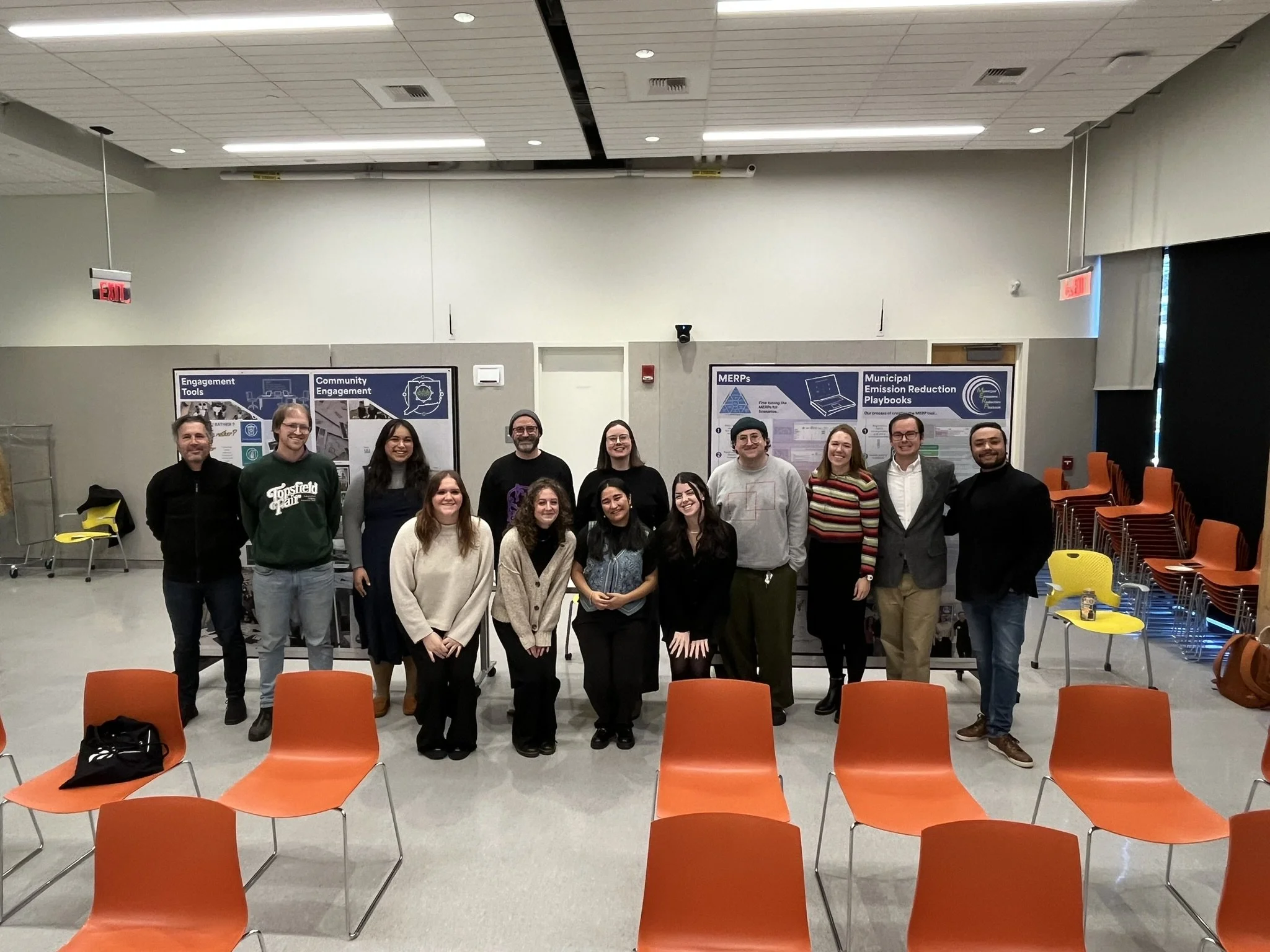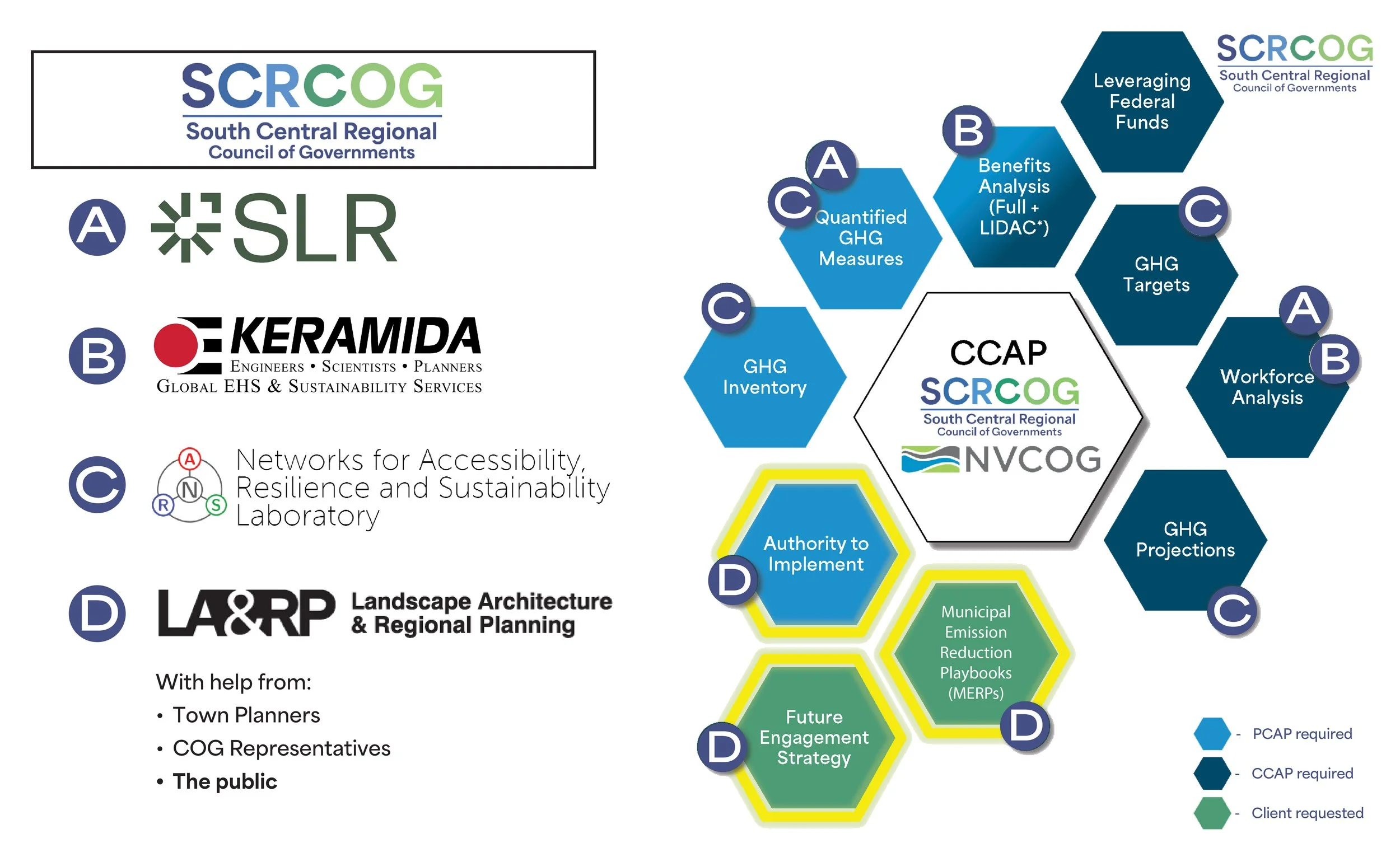
The mission of Impact 2050 is to create pathways to an equitable climate future and to improve the quality of life for all in New Haven County.
What’s Impact 2050?
The project’s core purpose is to create an ambitious plan for reducing greenhouse gas emissions in the region, with a focus on the needs and insights of low-income and disadvantaged communities.

Meet the UMass Team!
Funding
Created through the Inflation Reduction Act, the Climate Pollution Reduction Grant (CPRG) program supports state and metropolitan areas to make and implement plans to reduce greenhouse gas emissions, with 40% of the benefits flowing to low-income and disadvantaged communities. The program funds two stages of climate action planning: Priority Climate Action Plans, or PCAPs, and Comprehensive Climate Action Plans, or CCAPs.
SCRCOG is the lead organization for the CPRG climate action plans for the New Haven-Milford metro area, which includes some communities represented by NVCOG. SCRCOG has partnered with UMass Amherst’s MRP program to research and draft the PCAP and CCAP. Both plans will be created with input from residents, with strong community engagement during the CCAP phase (2024-25), prioritizing low-income and disadvantaged communities.
This project is part of the Justice40 Initiative, with 40% of the benefits flowing to low-income and disadvantaged communities, as defined by federal criteria.
While contributing the least to climate change, communities of color, low-income communities, and historically disadvantaged communities are at highest risk from its hazards, such as hot city areas with few trees, health problems made worse by heat and pollution, and housing damage and loss due to flooding and storms. Climate change planning must work in partnership with these communities and put their insights and needs front and center. When we do this, we make a stronger plan for everyone.
What is happening with climate change in our region?
Current conditions in the region indicate that climate change-related impacts are already happening. These observed impacts include higher precipitation, higher average temperatures, and an increased risk of tropical cyclone impact.
CPRG Grant Objectives
The project's first phase, the PCAP, focuses on assessing regional priorities and creating a plan that meets the objectives set by the EPA. As defined through the CPRG program, our strategy includes the following items:
Regional Greenhouse Gas (GHG) Inventory
GHG Reduction Measures
Review of Authority to Implement
Low-Income Disadvantaged Community Benefits Analysis
Going above and beyond what is required, our project supplies quantified GHG reduction measures and features research-backed policy recommendations informed by a scenario planning framework. Additionally, our PCAP provides a comprehensive and meaningful public engagement strategy for rollout starting in 2024. In the following academic year, findings from the PCAP will help guide the creation of SCROG's CCAP.
To view our final presentation boards, click the button below.

Click on the hexagon to view more…


